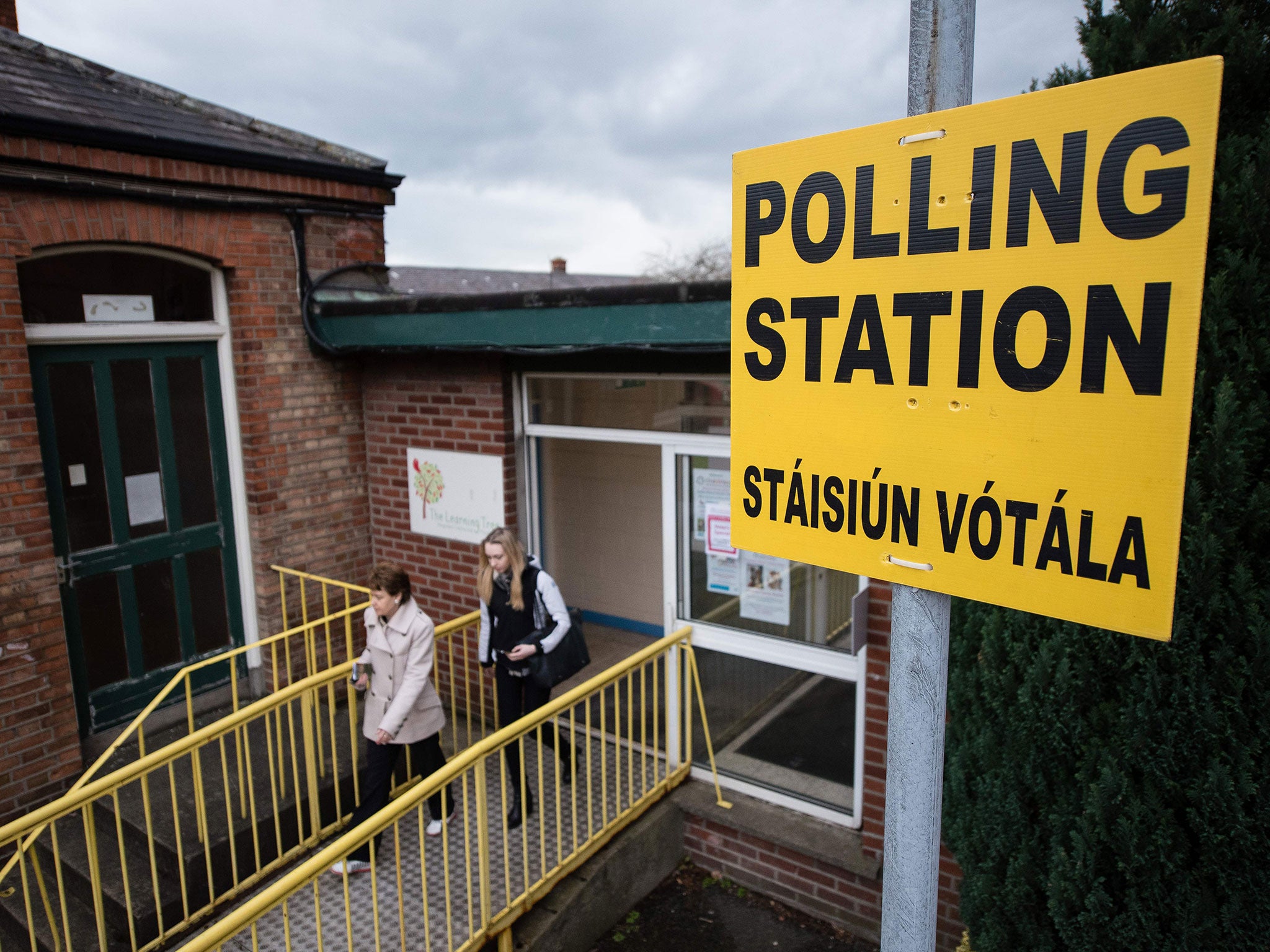Irish election: Ireland facing grand-coalition after no clear winner emerges from election
Fianna Fáil and Fine Gael are the country's traditional governing parties, however neither of them have gained enough votes to govern individually or as a coalition

Your support helps us to tell the story
From reproductive rights to climate change to Big Tech, The Independent is on the ground when the story is developing. Whether it's investigating the financials of Elon Musk's pro-Trump PAC or producing our latest documentary, 'The A Word', which shines a light on the American women fighting for reproductive rights, we know how important it is to parse out the facts from the messaging.
At such a critical moment in US history, we need reporters on the ground. Your donation allows us to keep sending journalists to speak to both sides of the story.
The Independent is trusted by Americans across the entire political spectrum. And unlike many other quality news outlets, we choose not to lock Americans out of our reporting and analysis with paywalls. We believe quality journalism should be available to everyone, paid for by those who can afford it.
Your support makes all the difference.Ireland has woken up to a democratic headache this morning as it appears no-one has won the general election.
Exit polls released last night as voting closed have indicated that not only have none of the parties won an outright majority, but none of the traditional government parties have enough backing to form a coalition between them.
Fianna Fáil and Fine Gael are the main parties which traditionally lead the Dáil parliament. However, Fine Gael has garnered just 26.1 per cent of the public vote, followed by Fianna Fáil on 22.9 per cent. This means that if the two parties were to govern together, they would still fall far short of the required majority.
The most notable change in voting habits is that the Irish public appears to be moving away from the main parties and towards smaller parties or Independents. The Social Democrats and Renua were both established in the last year and received 2.8 per cent and 2.3 per cent respectively. The far-left Anti-Austerity Alliance/ People Before Profit polled 3.6 per cent.
Sinn Féin have also seen a surge in support, with their vote boosting by 50 per cent since the last election.
Ireland has undergone a number of social and political changes in recent years which might explain today's results. The country suffered heavily during the global financial crash, with many blaming the ruling party for failing to sufficiently plan for or protect against the recession. Unemployment rates stand at 9.7 per cent and social deprivation is recorded as having doubled since the crash; all of which have fuelled frustration with the traditional political establishment.
Tensions are also growing inter-generationally on social issues such as abortion and LGBT rights, as many younger voters are rejecting the influence which the Catholic Church has exerted previously and which continues to inform the policies of some parties.
Vote counting began at 9 o’clock this morning and is expected to continue long into this evening and last until tomorrow for some constituencies. As Ireland uses a Proportional Representation-Single Transferable Vote system, it is not yet clear how the exit poll will translate into parliamentary seats. The PR-STV system sees voters mark the candidates by a number indicating their preference, instead of an ‘x’ or tick for a single candidate as in the Westminster First Past The Post system.
While a precise picture of the polls is yet to emerge, it’s becoming increasingly clear that regardless of the exact results the election has produced no clear winner. It seems most feasible that a number of parties may have to enter a grand coalition in order to govern; for instance Fianna Fáil and Fine Gael propped up by a smaller party or a number of Independents. However the likelihood and longevity of such an arrangement remains to be tested. Some commentators have speculated that a second election may need to be called within this calendar year in a bid to clear the murky results currently unfolding.
Join our commenting forum
Join thought-provoking conversations, follow other Independent readers and see their replies
Comments